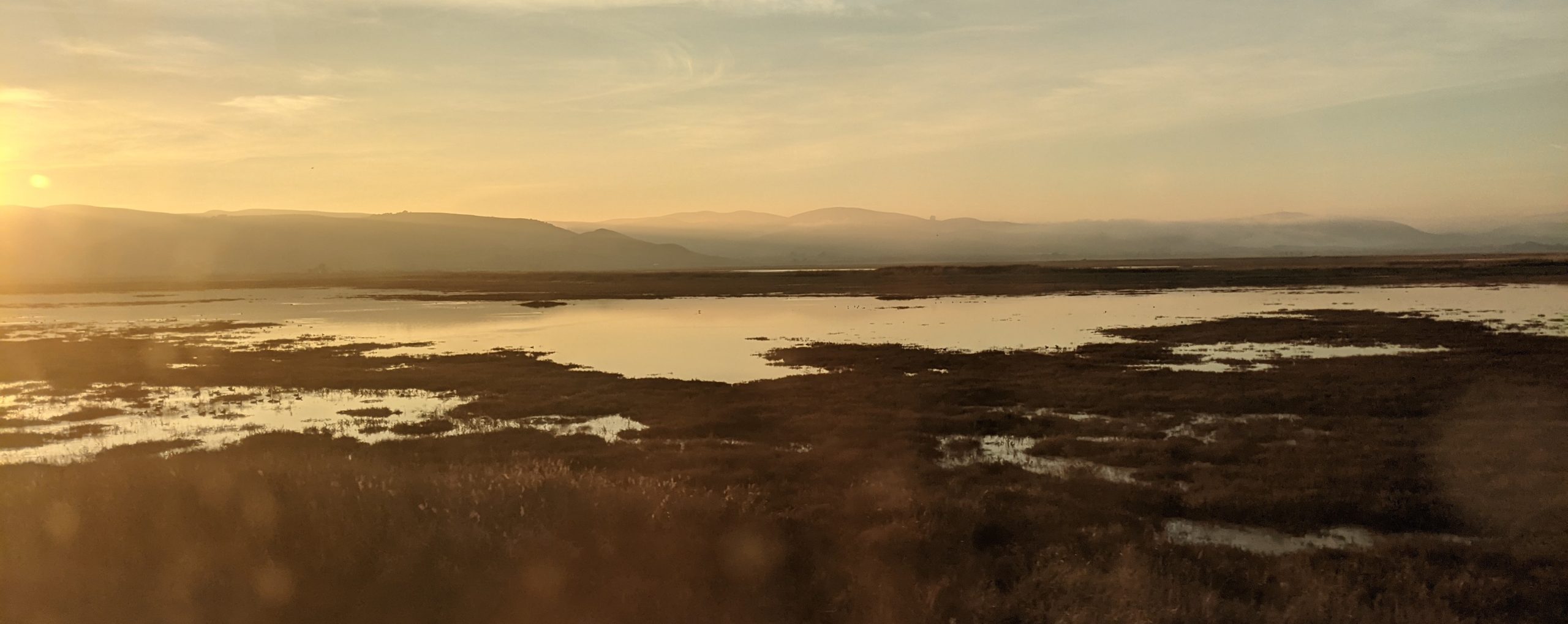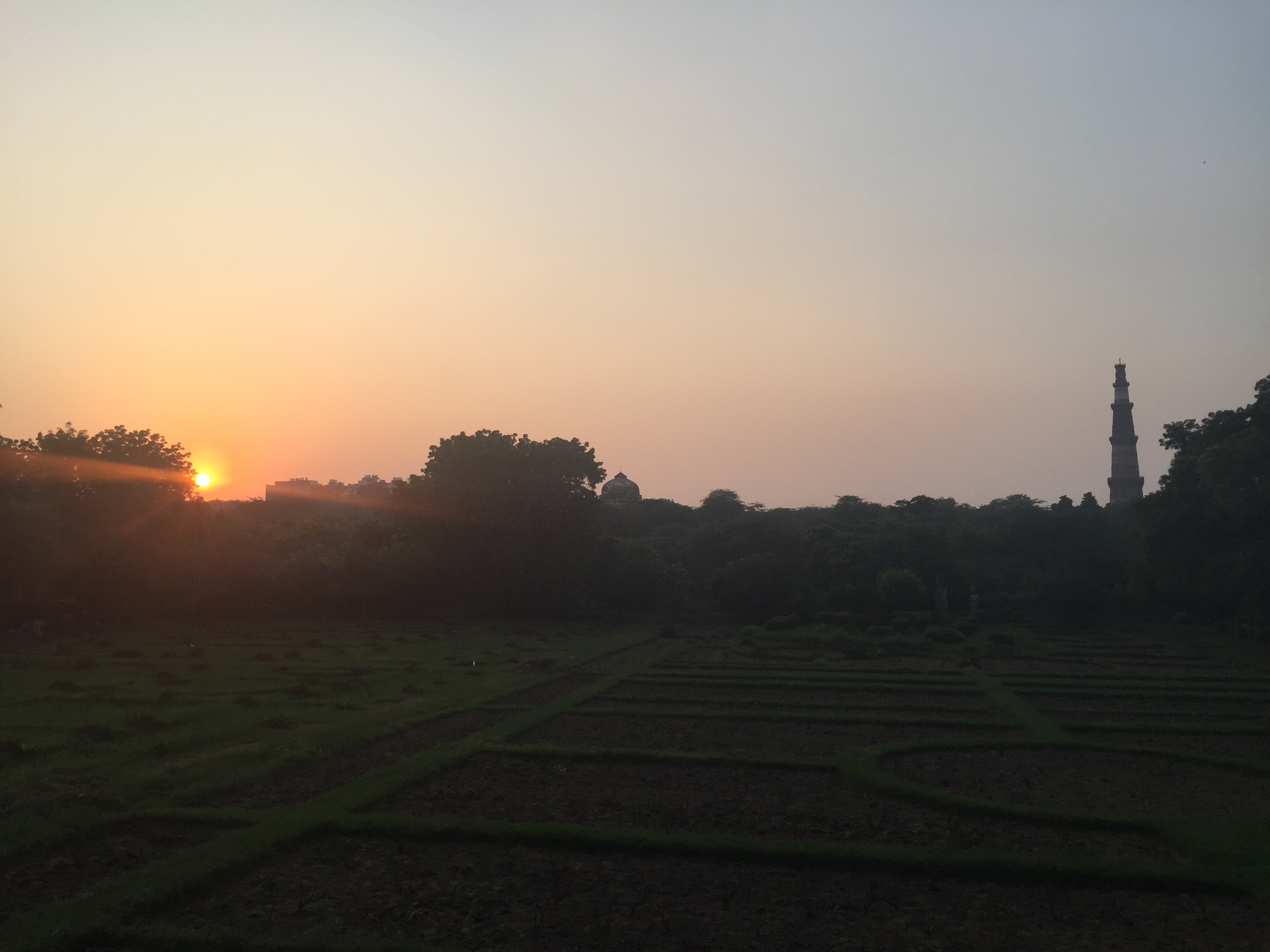Last Sunday, I walked around Mehrauli Archaeological Park. Families picnic and cricketers play near thousands of years of ruins, jumbled in intervals through a silent forest. It is lovely, not yet well-known to tourists like the adjacent Qutub Minar, not yet manicured. Plants creep up the rusted gates of tombs. Even on a Sunday afternoon in October, when most people are out to enjoy the good weather, the road to the Baoli is deserted. It’s a 200-acre park and I inadvertently walk into someone’s backyard. People have lived in this area for over 1000 years. The sunset over the rose garden is the loveliest I’ve seen in the city.
There’s a stereotype that South Delhi is all upscale malls and stuck-up people and if you want to see the real Delhi, go to Old Delhi, Shahjahanabad. In some ways this is true: South Delhi has a lot of air-conditioned pizza places. But South Delhi also has monuments and cities much older than Old Delhi, hiding in parks just off main roads or metro stations, in patches of grass half-in-plain view down side streets. (See this Wikipedia article about how many monuments of national importance are situated in South Delhi). And also real is the poverty that still exists at roundabouts and markets only streets away from the affluent, gated neighbourhoods.
South Delhi holds almost anything you could possibly have in a city in a chaotic balance. These three things coexist: the most ancient monuments of Delhi, built sometimes literally on top of one another when another ruler started another city; the cosmopolitan glamour; and the still-existent extreme poverty. After only nine months I can barely speak to anything about this city, but I can say this.
This is the brutal paradox: Delhi has everything that makes life worth living — in abundance! In exuberance! Whether you are spiritual/religious or not! — but a plethora of people who can’t experience it.
I think a lot about nineteenth century European novels here, because they’re set in cities like this that hold everything, which are difficult for middle-or-upper-class Americans today to imagine. I’ve been thinking about Les Misérables (the book) in particular, the main plot from the musical — the unjust punishment, the grace of the bishop, the abandoned children, love, revolution — but also the things left out of the musical — the digressions on war and philosophy and religion, the abandoned wooden elephant with rats, the quicksand, the city gardens, the sewer system. The sewer system as a human issue. The passages come alive in Delhi, and unpleasantly.
Literature like this has social worth and is also beautiful. Hugo’s preface focuses only on the social necessity of novels like this one. This is important and true, but, as this review says (preface below, and also in the review), even it simplifies the novel to only its social elements, when there’s a lot more there. Literature (and stories in general) like this fascinates me because they both display the problems in the world and (perhaps) offer the solutions.
As long as social damnation exists, through laws and customs, artificially creating hell at the heart of civilisation and muddying a destiny that is divine with human calamity; as long as the three problems of the century – man’s debasement through the proletariat, woman’s demoralisation through hunger, the wasting of the child through darkness – are not resolved; as long as social suffocation is possible in certain areas; in other words, and to take an even broader view, as long as ignorance and misery exist in this world, books like the one you are about to read are, perhaps, not entirely useless.
Economics can’t do justice to humanity. Sometimes in this sector we wish it explained everything about us so we could model things better. But that’s a horrifyingly two-dimensional way to look at life. (It’s also not how most “program beneficiaries” look at life). It leaves no room for love, or (arguably) justice.
Economics might provide solutions to intermediate goals, but can’t tell us why it’s important.
My answer to why want to do what I want to do has started to be something like this: I want a world in which anyone can sit watching a Delhi sunset, even if they are women alone. That they can spend time with their families without worrying how to feed them. That they have time and resources to explore the physical traces of their histories and the paths of their spiritual beliefs. That they have no constraints to putting on their good clothes and going to a dance. That they don’t die of pollution or malaria before they are old enough to grasp these things.
I could go on, but it’s beginning to sound naive – the point is, you don’t work in sanitation for the sake of sanitation or vaccines for the sake of vaccines, you work on them so humans can thrive.
What is human thriving, ultimately? Les Mis seems to get to it, somehow, but I can’t explain how. I can only so easily tell you what it’s not.

